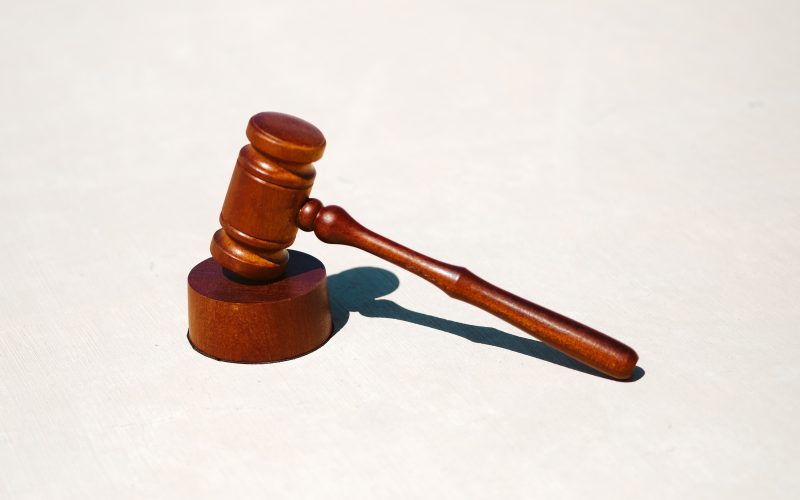Have you ever found yourself in a legal dispute but couldn’t afford the cost of hiring an attorney? Or maybe you just prefer to represent yourself and get a better understanding of the legal system. Whatever your reason may be, navigating the legal system as a pro se litigant can be both challenging and rewarding. In this blog post, we’ll explore some of the key challenges and opportunities that come with representing yourself in court, so read on to discover how you can make the most out of your experience!
What is Pro Se Litigation?
As a pro se litigant, you must navigate the legal system on your own. This can be a challenge, but it also presents many opportunities to gain unique insights into the court process and to build strong legal arguments. Here are some tips for navigating the pro se process:
1. Know the rules of court. As a pro se litigant, you may not know all the rules of court. Make sure to familiarize yourself with the rules of civil procedure and criminal procedure, as well as any special rules that apply to your case. This will help you stay organized and on track during your litigation journey.
2. Get organized early on in your litigation journey. If you plan to represent yourself in court, be prepared to get organized quickly. Create a filing system for all your documents, organize your case files by topic or issue, and keep up with any deadlines that may be looming down upon you.
3. Keep a positive attitude throughout your litigation journey. Even if things don’t go as planned, remember that litigation is an opportunity to learn about the legal system and build stronger legal arguments for future cases. Don’t let negative experiences frustrate or discourage you – instead, use them to improve your skills as a pro se litigant moving forward.
The Pros and Cons of Pro Se Litigation
As a pro se litigant, you may face some unique challenges and opportunities. Here are the pros and cons of pursuing litigation as a pro se litigant:
PROS
1. You have total control over your case- you are in charge of every aspect of your legal representation, from choosing the law you want to argue to preparing and presenting your case yourself.
2. You can save money on legal fees- without an attorney, you can represent yourself at no cost or reduced cost, potentially saving thousands of dollars in legal fees.
3. You can build a strong case- by researching the law on your own and building a persuasive argument, you reduce the risk that your case will fail due to weak evidence or incorrect legal analysis.
4. You can easily appeal decisions- if you lose your case, you can easily petition for a new trial or appeal the decision to a higher court.
CONS
1. You may not be familiar with all the relevant law- as a pro se litigant, it is important that you are well-informed about the law applicable to your specific situation, but this knowledge may not come naturally to you.
2. Pro Se litigation can be challenging- by necessity, pro se litigants must be prepared to handle any unexpected turns in their cases on their own, often without guidance from an attorney. This can be difficult both mentally and physically (particularly if you are representing
How to Prepare for Your Trial
If you are preparing for or have already begun your own legal proceedings, whether it be a civil lawsuit, criminal trial, or bankruptcy proceeding, you will likely face numerous challenges and opportunities. Here are some tips on how to prepare for and navigate the legal system as a pro se litigant:
1. Get help from an attorney if possible. A lawyer can provide guidance on the law governing your particular situation and can represent you in court proceedings. However, if you cannot afford an attorney, consider contacting one of the Legal Aid organizations available in your area.
2. Be prepared to travel to court. If you must travel to court to present your case, be sure to bring all the documentation necessary to support your case (legal papers, pictures, etc.) and enough money for transportation and other expenses associated with appearing in court (jail fees may be required if convicted of a crime).
3. Make sure you know what deadline applies to your case. Every jurisdiction has different rules governing when criminal charges must be brought or when a civil lawsuit must be filed; make sure you understand the deadlines that apply to your situation. If there is a statute of limitations limiting how long you have after the alleged wrong occurred to file a lawsuit, be aware of that as well.
4. Keep copies of all documents involved in your case. It can be difficult to track down specific information later on if something goes wrong during or after your legal proceedings; having copies of all relevant
Tips for Negotiating a Settlement
As a pro se litigant, you’ll face many challenges when negotiating a settlement. Here are some tips to help you navigate the legal system and achieve a successful settlement.
1. Make sure you have all the relevant information. When negotiating a settlement, it’s important to have all of the relevant information about your case. This includes knowing what damages you’re entitled to, whether there are any defenses you may have, and what the other party’s position is. If you don’t have this information, your lawyer can help you get it.
2. Take into account the other party’s position. When negotiating a settlement, it’s important to understand the other party’s position. This includes their legal rights and obligations, as well as their financial situation. If you know the other party’s position, you can try to reach an agreement that benefits both parties.
3. Stay calm and respectful. When negotiating a settlement, it can be tempting to get angry or hostile with the other party. Resist this temptation! Instead, stay calm and respectful throughout the process. This will help maintain your credibility and improve your chances of reaching a successful settlement.
4. Don’t give up too easily. It may seem like negotiations are going nowhere or that the other party is resistant to settling your case, but don’t give up too easily – persistence is key in achieving success in negotiations!
Conclusion
No one enters the legal system lightly. From hiring a lawyer to filing documents, there are countless steps that must be taken in order to protect and achieve one’s goals. This article provides an overview of the pros and cons of pro se litigation, as well as tips on navigating the legal system as a pro se litigant. Hopefully, by reading this article you will have a better understanding of the challenges and opportunities posed by taking on your own legal battles. If you have any questions or would like more information about pro se litigation, please do not hesitate to contact a qualified attorney.












